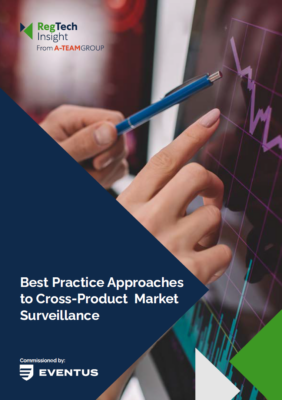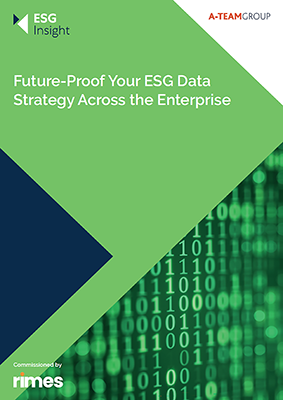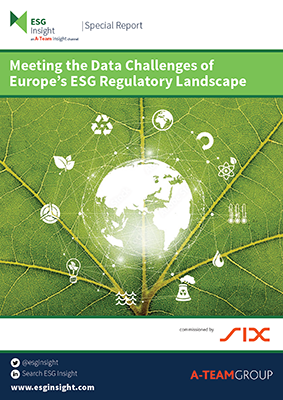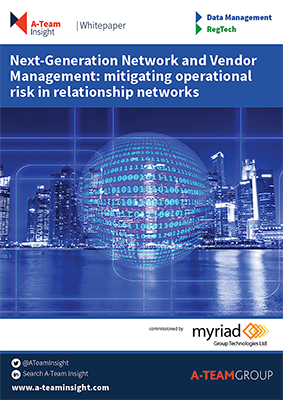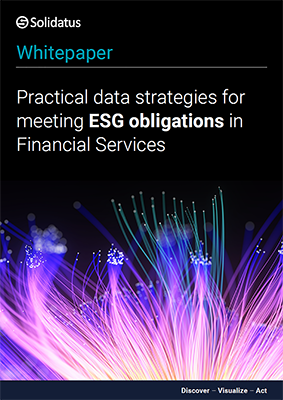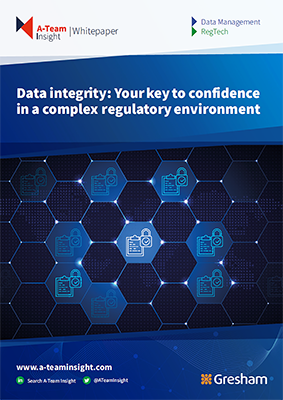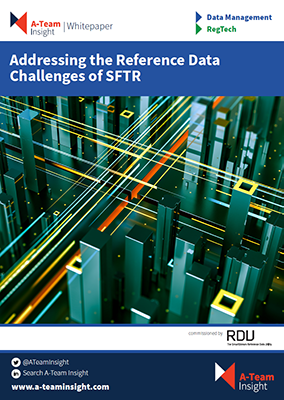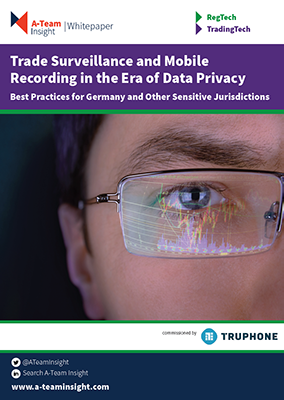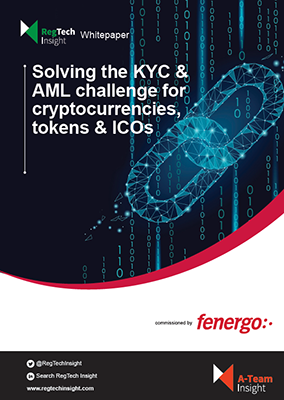RegTech Insight White Paper
Best Practice Approaches to Cross-Product Market Surveillance
As perpetrators of financial crime become more sophisticated, regulators worldwide are focusing more of their efforts on cross-product and cross-market manipulation, as evidenced by a growing number of high-profile prosecutions. Led by the UK’s FSA and the EU’s ESMA, regulators in key global markets are targeting sophisticated operators, whose cross-product activities typically involve are able...
Future-Proof Your ESG Data Strategy Across the Enterprise
ESG data is now as important to financial institutions as traditional price and reference data. Ensuring that data is accurate and consistent is critical so that can deploy it in their portfolio and risk management strategies as well as regulatory reporting systems. But ESG data is unlike that they would be used to. It’s often...
Meeting the Data Challenges of Europe’s ESG Regulatory Landscape
The European Union’s ESG reporting regulations continue to evolve and represent the biggest recognition yet by any international authority of the role that financial institutions will play in the climate transition. The Sustainable Finance Disclosure Regulation (SFDR), the EU Taxonomy, the Non-Financial Reporting Directive (NFRD) and the Corporate Sustainability Reporting Directive (CSDR) are intended to...
Next-Generation Network and Vendor Management: mitigating operational risk in relationship networks
The complex network of relationships that financial institutions have built with multiple partners has created a huge operational burden, resulting in significant operational risk as well as financial and compliance risk. Dating back decades, many of these relationships are now managed as a separate business function, costing organisations millions of dollars. Add in regulatory obligations,...
Practical Data Strategies for meeting ESG Obligations in Financial Services
The ESG investing landscape is poised to become more defined, as competing definitions, standards and regulatory initiatives start to converge. The impact of ESG will be felt far and wide across the financial services community, which will face practical challenges in developing and implementing an ESG strategy that is both effective and avoids box-ticking –...
Data integrity: Your key to confidence in a complex regulatory environment
Despite the recent challenges of the Covid pandemic, regulators have made it clear that they will not accept reporting errors, particularly those that are related to data. Enforcement is more stringent, scrutiny is more in-depth, and the pressure is on to ensure – and demonstrate – that the data underpinning your reporting and activities is...
Financial Markets Operations Response to COVID-19: Best Practices for Working from Home
The COVID-19 pandemic is disrupting all walks of life, and carries with it implications for society beyond even the obvious and immediate health impact. Business is being hit across the board, with many corporations sending staff home in an effort to keep them both safe and working. It’s clear that firms can’t rely on a...
Addressing the Reference Data Challenges of SFTR
The EU’s Securities Financing Transactions Regulation (SFTR), which comes into effect in April 2020, is a data-heavy transaction reporting regulation along the lines of MiFIR and EMIR, but has a significant reference data element as well. The regulation is extensive, with some 150 data fields in its mandatory regulatory reports, a dozen of which will...
Trade Surveillance and Mobile Recording in the Era of Data Privacy
The EU’s MiFID II and other regulations globally have placed greater emphasis than ever on market surveillance, recording of trading communications and records-retention processes in an attempt to stamp out market abuse and boost investor confidence and protections. At the same time, the public’s attitude toward data privacy has hardened, most visibly through new regulations...
Solving the KYC & AML Challenge for Cryptocurrencies, Tokens & ICOs
The cryptocurrency market is at an inflection point. It has gained substantial momentum from early investors (private & retail), day traders and prop shops but it has so far failed to get substantive engagement from wider institutional players. The crypto marketplace today is a mix of exchange and OTC-traded activity with little of the market...


